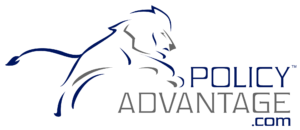Ten Essential Questions to Ask Your Health Insurance Broker
Introduction:
Selecting the right health insurance plan for your company is a critical decision that can significantly impact the well-being of your employees and the financial health of your organization. To make an informed choice, it’s crucial to engage with a knowledgeable health insurance broker who can guide you through the complex world of healthcare coverage. Asking the right questions will help you understand the options available, assess their suitability for your company, and ensure you make the best decision possible. In this blog post, we’ll discuss the top ten questions you should ask your health insurance broker to make an informed choice for your company’s healthcare needs.
- What are the available plan options? Begin by understanding the different types of health insurance plans available, such as HMOs, PPOs, and high-deductible plans. Ask your broker to explain the pros and cons of each option and help you assess which one aligns with your company’s budget, employee needs, and network preferences.
- How does the enrollment process work? Ensure you understand the enrollment process, including deadlines, required paperwork, and any other necessary steps. A competent broker should be able to guide you through the process and help streamline it for your employees.
- What is the cost structure of the plan? Understand the cost breakdown of the plan, including premiums, deductibles, co-pays, and out-of-pocket limits. Ask your broker to provide specific details about employee and employer contributions, ensuring transparency and clarity.
- Are there any wellness programs or additional benefits? Inquire about wellness programs or additional benefits that may be offered alongside the insurance plan. These can include services like preventative care, telemedicine, employee assistance programs, and access to health and wellness resources.
- How does the network of healthcare providers work? Discuss the network of healthcare providers associated with the insurance plan. Ensure that the network includes preferred providers in your area and inquire about the process for seeking out-of-network care if needed.
- Do you have any strategic partnerships that enhance your services? Many health insurance agencies often collaborate with HR tech companies, compliance firms, payroll service providers, and other related entities to offer comprehensive solutions to their clients. These strategic partnerships can enhance the overall employee benefits experience by integrating health insurance services with other HR and administrative functions.
- How are prescription drugs covered? Prescription drug coverage is a crucial aspect of any health insurance plan. Ask your broker to provide details on formularies, co-pays, mail-order options, and any restrictions or limitations regarding specific medications.
- What customer support is available? Inquire about the customer support provided by the insurance carrier and broker. Understand how your employees can access assistance for benefit inquiries, and general questions related to their coverage.
- What tools or resources are available for employee education? A well-informed workforce is better equipped to make the most of their health insurance benefits. Ask your broker about the availability of educational resources, online tools, or mobile applications that can help employees understand and manage their coverage effectively.
- How will the plan be evaluated and adjusted over time? Health insurance needs can change over time, and it’s essential to have a plan that can adapt accordingly. Discuss with your broker how the plan will be reviewed, evaluated, and adjusted as needed to accommodate your company’s evolving healthcare requirements.
Conclusion:
Selecting the right health insurance plan for your company requires careful consideration and the guidance of a knowledgeable health insurance broker. By asking the ten questions outlined above, you can ensure that you are making an informed decision that aligns with your company’s budget, employee needs, and long-term healthcare goals. Remember, a trusted broker will provide valuable insights and help you navigate the complexities of the healthcare system, ultimately ensuring the well-being of your employees and the success of your organization, while creating competitive advantage.

Excellent and comprehensive post guys, it was very informative. Can employers also offer multiple plans to their employees, to increase flexibility and choice?
Hi Ronald, thanks for your question and connecting with us! Yes, it is an excellent idea to offer multiple insurance plan options to employees in just about any size group. This includes offering a variety of HMOs, PPOs, and other plan designs. Additionally, it is a great idea to offer different benefits levels of coverage too, so employees have choices when balancing premiums and copays/deductibles to their specific necessities. There are easy and convenient ways for employers to offer multiple plan options to their employees, and add value and flexibility to their program. Feel free to message us here at the website or email us at [email protected]. Thanks for your question!
Do you have any strategic partnerships with HR/software companies that can assist organizations with more than 50 fulltime equivalent employees while navigating the Affordable Care Act’s “employer mandate?”
Hi Abigail, thanks for your comment/question and hope you are well. Yes, we do have strategic partnerships with SaaS companies who have industry leading technology that help larger employers manage the “employer shared responsibility provisions” of the ACA (the employer mandate). These software programs seamlessly integrate with health insurance plans, and track employee fulltime status (+30 hours weekly), as well as fulltime equivalents (employees with less than 30 hours weekly). Additionally, the SaaS can help with calculating affordability ratios based on employee wages, so you groups are in compliance. Lastly, it can also generate IRS administrative forms like the 1099-C that is sent out annually to participating employees. Feel free to message us here at the website, or send us an email at [email protected]. and we’ll get you further information.